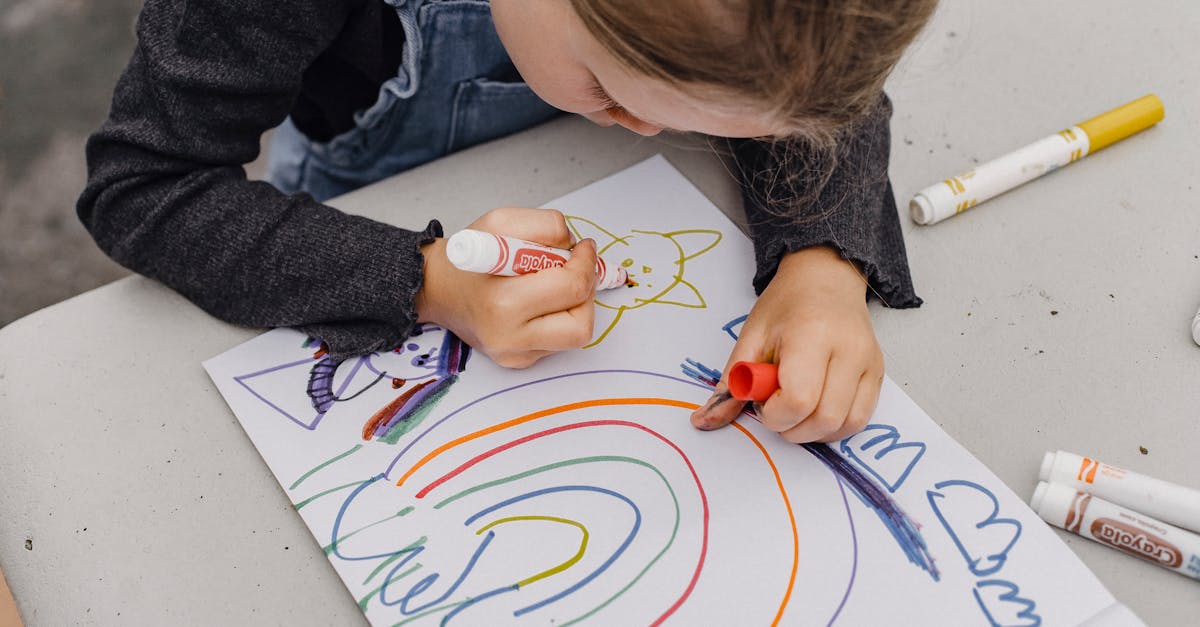Why Body Respect Matters Early On
Preschool is an exciting era where curiosity runs wild, like a squirrel on espresso. In this whirlwind, teaching little ones to honor their bodies is more crucial than accidentally checking Facebook at work. As tiny sponges, they absorb everything. Instilling respect for their bodies empowers them and fosters self-esteem, just like Popeye did with his spinach.
This foundation helps them set boundaries and understand that their bodies are exclusively theirs, which is a big deal in a big world.
Being a Role Model
And hey, did you know being a good role model is like being a superhero without a fancy cape? Practicing body respect yourself shines a powerful light on their little worlds.

Understanding Kids’ Emotional Challenges
A toddler’s life is a rollercoaster of emotions. One minute they’re the king of the castle, next they’re devastated over a sandwich cut in half. Acknowledging their feelings about their bodies can often be sidelined, but it’s as vital as finding the last pair of matching socks.
Children can experience confusion, frustration, or anxiety over their growing bodies. Imagine a world where parents can guide them through this chaos of emotion like a trusty GPS, leading the way to self-awareness and confidence.
Understanding these soft heartbeats makes a bridge of empathy, equipping parents to address these miniature meltdowns constructively.

Practical Ways to Teach Body Respect
Teaching body respect doesn’t require you to be a parenting guru or a zen monk. Start small with language: use correct names for body parts, making it as normal as naming a ‘banana’.
Find Your Rhythm
Discuss personal space like it’s your favorite playlist. Read engaging books together that celebrate body diversity and fold in conversations about boundaries during everyday moments, maybe try while dodging LEGO minefields.
Organic Practices
These practices, as organic as breathing, set up valuable lessons without a tediously drawn-out family meeting. Remember, they learn a ton by mirroring grown-ups, so practice what you preach, savvy?

Nurturing a Positive Body Image
Body image issues can creep in like sneaky ninjas even at an early age. Crafting a positive narrative around their bodies is as essential as preventing crayon graffiti on walls.
Celebrate what bodies can do rather than how they look — cheer for their jumping skills, dexterity at stacking blocks, or creative dance moves. Filling their universe with positivity and acceptance can balance out the external noise they might encounter.
Keep the focus on health and strength rather than thinness or beauty — because every body tells a unique, wondrous story worth applauding like a favorite movie ending.

Fostering Open Communication with Kids
Ever had that awkward moment trying to discuss body topics with your preschooler? Trust me, you’re not alone. Crack this code by creating a safe zone where they can ask about literally anything—they might surprise you with questions even AI couldn’t predict.
Encourage openness by being approachable, letting them know it’s okay to be curious or confused. Share personal stories where appropriate; nothing bridges gaps better than a real-live ‘once-when-I-was-your-age’ tale.
Communication refined with honesty acts as emotional armor for kids, equipping them to handle any peer peculiarities or adult misunderstandings down the road.

Key Points to Remember
- Create a safe environment for questions.
- Be approachable and open for discussion.
- Share relatable personal stories.
- Promote honesty in communication.
The Role of Play in Teaching Respect
One thing kids excel at is playing, and this is where ninja-level teaching can happen. Use playtime as an interactive platform to underscore respect for their bodies — dolls and puppets can become quirky teachers for boundaries.
Consider games that promote understanding personal space or respect, like red light, green light with a twist. Perhaps that twist is a dance-off!
Play is also therapeutic, letting them express themselves freely, offering a sneak peek into any subtle apprehensions they might have. It’s like having helpful spies at your disposal who make sure the secret message of body respect gets through.

Encouraging Parents to Share Experiences
Your parenting journey is a gold mine of experiences other parents can relate to—even on a bad day. Ever tried getting spaghetti straight off the walls like modern art?
Sharing these delightful mishaps or triumphs encourages a bonding that builds an understanding community. Don’t hesitate to pen down these stories or join forums discussing strategies about teaching kids body respect.
Engage with others, because sometimes the best advice comes in the form of a comical others-have-done-this-too tale. Remember, parenting is like learning to dance; more fun when others are stepping on your toes too!

